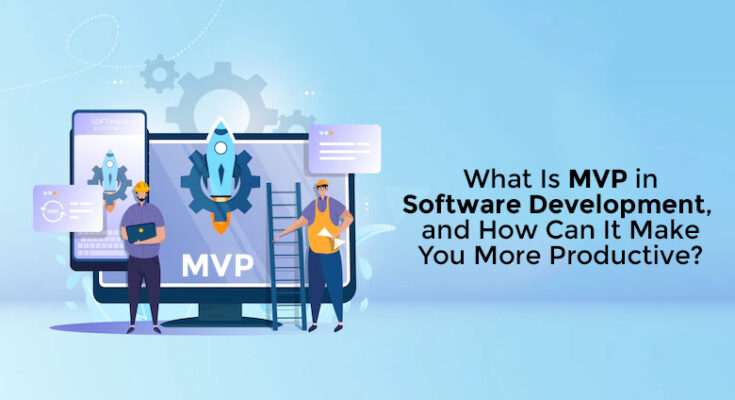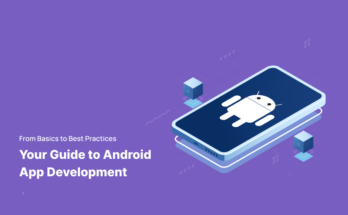Deciding to build a startup can be a risky notion, mainly if it deals with implementing and creating new technology. Building an innovative and groundbreaking product often involves its own set of risks. The fear that a project is irrelevant to the end user constantly threatens a never-thought-of-before service or product.
What is MVP in Business?
A Minimum Viable Product (MVP) is an effective strategy that helps create and deliver a basic implementation of a product to customers in order to collect user feedback. This helps save additional time and resources by determining which features are most used by potential customers. MVP development services collect customer behavioral trends with minimum resources and effort.
The primary goal of an MVP in business or software development is to validate a product idea quickly and with minimal expenditure and exposure to developing a full-fledged product.
The launch of a new software development project has its own set of risks. Additionally, there’s the added risk that the finished product is well-received by users or works as intended. MVPs are especially useful for testing new ideas and collecting feedback from end users without the risk of launching a full-scale project.
MVPs can be built cost-effectively if you hire software developers in India, making them appealing to new startups and small businesses. Doing so allows you to focus on your development team to curate the essential features of a product. Although the decision on whether or not to build an MVP will solely depend on the nature of your projects, MVPs can help you reduce the risks you take substantially.
How MVPs can Make Your Project More Productive
● They Help Make the Product Unique
By using an innovative MVP, you can solve major problems using understandable working principles. Doing so enables your development team to curate the project to be user-friendly and allows the project to solve several issues efficiently.
● They Help Determine Key Design Choices
An effective MVP enables you to get a fresh perspective on the features and interface that users may expect from your product. This collected data allows you to develop and design critical features that align with the target customer’s expectations.
● They Help Improvise Functionality
An MVP can ensure that the functions of the project align perfectly with the vision of the business. Adding custom features to a product requires a skilled and resourceful team. After all, it is better to catch any bugs or issues in the development stage rather than delay the final release due to them.
● They Help Present a Clear Picture to Stakeholders and Investors
Since most startups rarely have viable products to pitch to their investors, having an MVP allows you to give investors and stakeholders a clearer picture of your product. By doing so, they are able to make risk-free decisions. Furthermore, it can also help create brand awareness.
● They Make Your Projects Cost-Efficient
The primary purpose of an MVP in software development is to get a clearer outlook of the necessary changes and features required for the project to succeed. This allows startups to avoid making vital errors and avoid complex solutions. Additionally, an MVP will enable you to lower your development and maintenance costs and better understand the required criteria for talent before hiring entire departments.
● They Reduce the Chances of an Error
Every project gets significantly complex over time due to the increased contributions from systems and people involved. An MVP helps you avoid any complex situations and avoid potential errors by reducing system shutdowns and facilitating maintenance management.
● They Help Build Better Relations with Customers
Having an MVP allows startups to better prepare, laying down the groundwork for product development. This enables development teams to create solutions for the end users while the marketing team spreads word of your new product all over the internet.
Popular MVP Software Development Examples You May be Familiar With
MVPs allow new businesses and startups to test their theories about a specific product or service before investing substantial time and resources. Furthermore, launching an MVP can generate a lot of buzz and interest from a business perspective and helps attract potential customers and investors.
Here are some popular companies that started out with MVP software development examples.
● Meta
Formerly known as “Facebook,” Meta started as an MVP product that helped American students stay connected. It started out in just 4 (four) universities and became available globally after a year.
● Dropbox
A widely renowned file-hosting company, dropbox, implemented an MVP approach by using explanatory videos of how it could implement technology to change how files could be shared. This allowed them to increase their signups by 5 (five) times, even before they launched any tangible product.
What started as an SMS communication platform, Twitter, was an MVP product that could only provide SMS. However, their widespread success allowed them to develop into the social media giant we now know and love.
● Groupon
Groupon started as an MVP product to allow people to help each other while running a crowdfunding campaign and boycotting some negligent stores. Over time, users began spreading coupons and promo codes via manual emails, which later became a global industry.
Final Words
The short answer to the question, “what is MVP in business.” Building an effective MVP (Minimum Viable Product) is an effective strategy for new companies to provide a stripped-down variant of the final product that provides the core features necessary for the end user. This approach allows startups to perfect their products and get them aligned with the market assumptions among potential customers.




